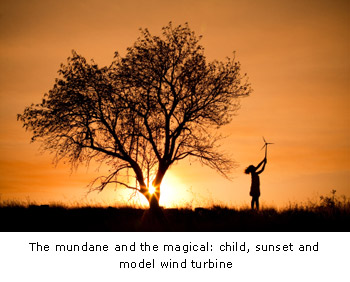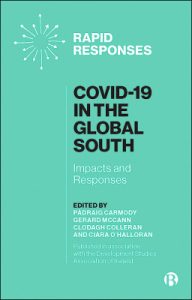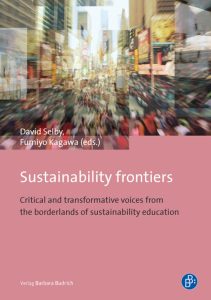Big claims are made for sustainability education as having transformative intent and effect. We wonder if this is so. Many of the learning tools used to effect transformation are primarily cognitive and in a rather narrow sense scientific whereas transformation calls for a significantly broader and more multi-facetted epistemology giving due weight and value to the multiplicity of ways of knowing.
 In particular, achieving transformative shifts in assumptions, perspectives and worldview calls for emotionally engaged learning alongside the achievement of cognitive learning and skills gains. Too much sustainability education thus seems like putting old wine in new bottles. Allied to this point is the reluctance of sustainability educators to offer in-depth challenge to behavioural and attitudinal norms. Key global issues such as human rights denials and gender inequality are addressed but in ways that fall short of serious interrogation of taken-for-granted thinking and of the root causes of global dysfunction such as the complicity of economic growth in fomenting global devastation, unsustainable consumerism, the myths of human exceptionalism and constantly upward human progress, and disassociation from the natural world (see Theme 3).
In particular, achieving transformative shifts in assumptions, perspectives and worldview calls for emotionally engaged learning alongside the achievement of cognitive learning and skills gains. Too much sustainability education thus seems like putting old wine in new bottles. Allied to this point is the reluctance of sustainability educators to offer in-depth challenge to behavioural and attitudinal norms. Key global issues such as human rights denials and gender inequality are addressed but in ways that fall short of serious interrogation of taken-for-granted thinking and of the root causes of global dysfunction such as the complicity of economic growth in fomenting global devastation, unsustainable consumerism, the myths of human exceptionalism and constantly upward human progress, and disassociation from the natural world (see Theme 3).
We hold that sustainability education can only be truly transformative if it addresses three important areas. First, it needs to stop referencing nature as ‘environment’, i.e. as something that surrounds us but does not necessarily include us, and return to immersion in ‘nature’ and the ‘natural world’. Second, it needs to confront despair and dystopia in the face of the inclined slope of a worsening global condition. Third, and very importantly, it needs to address learning that is deeply transgressive in that it paves the way to an overturning of orthodoxies, to deep and daring questioning of assumptions and a readiness to discard of shibboleths that have long had their day. In other words there is a need to shed a current ‘business as usual’ orientation and foster fundamentally radical learning.
Projects/Consultancies
Key Publications
- David Selby & Fumiyo Kagawa. (2020). Climate Change and Coronavirus: A Confluence of Crises as Learning Moment’. In: Pádraig Carmody, Gerard McCann, Clodagh Colleran & Ciara O’Halloran. (eds.). COVID-19 in the Global South: Impacts and Responses. Bristol: Bristol University Press. 17-27
- David Selby & Fumiyo Kagawa. (Ed). (2015). Sustainability Frontiers: Critical and Transformative Voices from the Borderlands of Sustainability Education. Barbara Budrich, Opladen.


